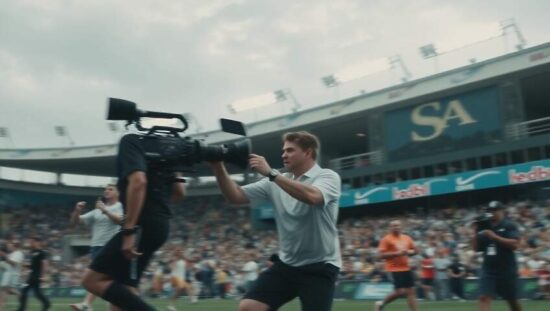the increasing dominance of Bundesliga clubs over their second division counterparts, often achieved through sheer attrition rather than sustained superiority..
The match, played out in front of a vocal home crowd, initially saw Union Berlin take an early lead through a headed goal from Leopold Ziereis, capitalizing on a precise free kick delivery. However, Bielefeld, demonstrably unfazed by facing a Bundesliga opponent, quickly equalized through Monju Momuluh, showcasing a tactical sharpness that suggested a genuine challenge was on the cards.
For extended periods, the momentum shifted, with Bielefeld confidently dictating play and creating genuine scoring opportunities. The visitors appeared the more assertive side, unsettling Union’s rhythm and exposing vulnerabilities in their defensive structure. A missed opportunity by Sarenren Bazee, hitting the post, underscored the precarious state of the Bundesliga side’s grip on the game.
The second half continued in a similar vein, marked by tactical parity and a palpable lack of dynamism from Union. While the home team exerted pressure in the closing stages, Bielefeld’s disciplined defending and evident game management strategy – prioritizing a potential penalty shootout – frustrated their efforts. A crucial save from Arminia’s goalkeeper, Jonas Kersken, in added time, denied Union a late winner and highlighted the visitors’ steely resolve.
The eventual progression to the next round for Union solely materialized due to a devastating blow for Bielefeld. A freak injury to Marvin Mehlem, compounded by the team having already exhausted their substitutions, left the second-division side playing with ten men for the remainder of extra time. Union exploited this disadvantage ruthlessly, netting the decisive goal within seconds of the restart of the second extra-time period courtesy of Danilho Doekhi.
While the final scoreline suggests a comfortable victory for Union, the narrative is far more nuanced. The match starkly revealed how increasingly reliant Bundesliga teams are on exploiting numerical advantages-often created through unfortunate circumstances for their opponents-rather than displaying consistent, commanding performances. This reliance on circumstance, rather than skill, raises questions about the competitiveness and genuine excitement surrounding the DFB-Pokal and whether the current structure adequately promotes a level playing field for clubs across all divisions. The narrow escape for Union is not merely a story of a single match; it’s symptomatic of a wider issue plaguing German football.





